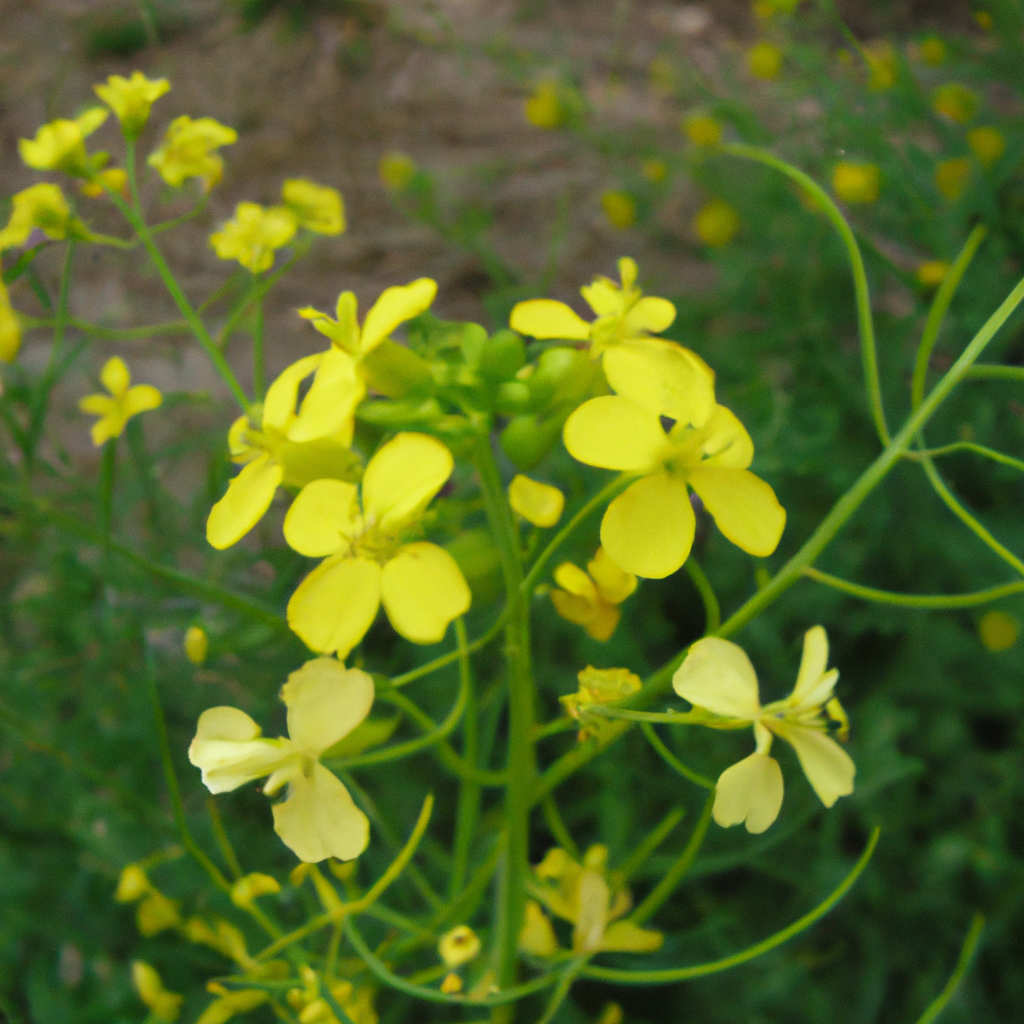Biological Name:
Barbarea vulgaris (Yellow-Rocket)
Natural Habitat:
Yellow-rocket is a type of flowering plant that is native to Europe and Asia. It can grow in a variety of habitats, including meadows, fields, and forest edges.
Description:
Yellow-Rocket is a herbaceous annual plant that is native to Europe and Asia. It has small yellow or white flowers and long narrow leaves. It is often found in agricultural fields and is a common weed.
Frequently Asked Questions (FAQs)
Q: What is Yellow Rocket Good For?
A: Historically, the plant has been used as a poultice for wounds. It was thought to be an efficient medicinal for scurvy, which is a vitamin C deficiency. This weed with yellow flowers is also a natural diuretic. Because bittercress is bitter, it is used as a natural plant bitter.
Source
Q: Is rocket healthier than spinach?
A: Baby spinach has about twice the iron, vitamin C and vitamin e of rocket, and over three times the healthy-eye carotenoids lutein and zeaxanthin, plus over four times the vitamin K and more potassium, beta-carotene and fibre.
Source
Q: Is rocket good for lowering cholesterol?
A: One such compound is sulforaphane, which is found in rocket and broccoli. Several years ago, researchers produced a “super broccoli†with high amounts of sulforaphane. Consumers couldn’t taste the difference, and it was later shown to be effective in preventing and slowing prostate cancer and in lowering cholesterol.
Source
Q: What part of yellow rocket is edible?
A: Edible Parts The leaves can be cut up fresh over salads, older leaves can be used in stews or soups, or you can dry the leaves to make tea. Flowering stems can be cooked like broccoli.
Source
Q: Can you eat rocket raw?
A: Nutrition. The leaves have good levels of vitamin C and folic acid as well as calcium and potassium, and are an excellent source of vitamins A, B and K. Rocket is usually eaten raw, so no goodness is reduced by cooking.
Source
Q: Is rocket healthy to eat?
A: A cereal-sized bowl of rocket leaves counts as one of your 5-a-day (one portion of veg or fruit is 80g raw weight), plus rocket is high in folate, and is a source of calcium and vitamin C.
Source
Q: Is rocket healthier than lettuce?
A: Researchers studied leafy vegetables including spinach, lettuce and rocket over five years from May 2014. Iceberg lettuce was found to have the lowest nitrate levels of all the leaves, while rocket was found to be the highest.
Source
Q: Is Yellow Rocket invasive?
A: Yellow Rocket, Barbarea vulgaris, also known as Common Witch an invasive, non-native species in the Bracacaea family. It’s a weedy plant that grows to be anywhere between two and four feet tall with four yellow petals causing its flower to stand out.
Source
Q: What grows well next to rocket?
A: Companion Plants for Rocket: Grow Rocket near tomatoes, onions, chives, garlic and raspberries where they will enhance each other’s flavour.
Source
Q: Where should you plant rocket?
A: Choose a sunny spot in the garden with well-drained soil. If you live in an area where the summers are very hot, plant in part shade or provide protection from the afternoon sun. The rocket leaves will be ready to harvest after six weeks, but the younger leaves can be picked sooner, if desired.
Source
Q: Do bees like Yellow Rocket?
A: Yellow Rocket isn’t a particularly good cut flower but I love the cheerfulness they bring into my spring garden, especially during the dreary, rainy season. Honeybees like them, too!
Source
Q: What do you do with rocket after flowering?
A: Rocket flower buds and flowers are edible, and the petals are particularly good when snipped into summer salads. I pull up or turn under bolted rocket plants in spring, leaving behind at least one pair of plants to produce seeds for my fall crop.
Source
Q: How do you get rid of yellow rockets?
A: Herbicide Use Since yellow rocket is a winter annual which germinates in the fall, post-emergence herbicide applications will be most effective at this time. Use a selective post-emergence application timed after germination when plants are young and actively growing.
Source
Q: Is yellow rocket poisonous?
A: Yellow rocket is considered non-toxic to humans.
Source
Q: Is yellow rocket poisonous to cattle?
A: The flowers look very different from cressleaf and the plants are typically shorter on green stems and grow with a taproot. Although yellow rocket can cause digestive upset if consumed in large quantities, it is not considered poisonous or noxious.
Source
Q: Should I stop rocket from flowering?
A: As flower buds appear, pinch them out to prolong cropping, unless you want the plant to produce seeds. The flowers are edible and can be used as a garnish for salads.
Source
Q: Are yellow rockets weeds?
A: Yellow Rocket grows as a winter annual broadleaf weed, a biennial broadleaf weed and, in very rare situations, a perennial broadleaf weed. This highly adaptive plant is also referred to as Winter Cress, St. Barbara’s Cress, Bitter Cress and Rocket Cress. Its scientific name is Barbarea vulgaris.
Source
Q: Is Yellow Rocket good for pollinators?
A: Just take a pile of dirt, leave it alone and let whatever wants to grow in it grow in it. The flowering plants — like wild mustard — that grow in exposed soil are usually more attractive to honey bees and native pollinators than anything I’ve seen come out of seed packets.
Source
Q: How do you identify a Yellow Rocket?
A: Seedlings: Yellow rocket cotyledons are egg-shaped to round with a slightly-notched apex and a long stem. Early leaves are round with a heart-shaped base and wavy or entire margins. As the leaves mature their edges become distinctly toothed.
Source
Q: Is Yellow Rocket the same as wild mustard?
A: This plant is often confused with wild mustard but it can be distinguished from wild mustard by its smaller, deeper golden yellow flowers, hairless leaves that are a glossy green or may even be slightly purplish in colour, the large terminal lobe within the leaves.
Source
Q: Is Yellow Rocket poisonous to humans?
A: Toxicity. Yellow rocket is considered non-toxic to humans.
Source
Q: Why is my rocket yellow?
A: Yellowing of leaves on your rocket plant could indicate a nutrient deficiency.
Source

